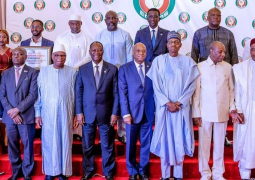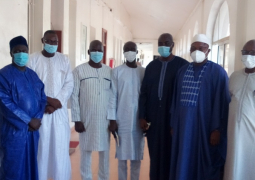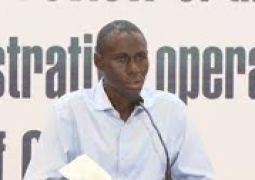
The motion, driven by allegations of constitutional breaches and failure to present the government's policy agenda, now lies in the hands of the President of the National Assembly. This rare political move, reminiscent of a similar crisis in 1962, threatens to destabilise Sonko's administration as opposition leaders push for swift action.
The motion of censure against Prime Minister Ousmane Sonko’s government was tabled by the opposition coalition, Benno Bokk Yaakaar (BBY), on Tuesday, September 3rd. The opposition accuses Sonko of failing to uphold the constitution by neglecting to deliver the General Policy Declaration (DPG) to the National Assembly—a crucial speech outlining the government's programme and reforms.
BBY argues that Sonko's disregard for this constitutional obligation, coupled with what they perceive as disrespect towards the parliamentary majority, justifies their call for his resignation. This move has sparked a political storm, with echoes of the 1962 crisis when then-Prime Minister Momodou Dia was forced to resign under similar circumstances.
The opposition's push for a vote on the motion is urgent, as they hope to force a dissolution of the parliament by September 12th, thereby gaining political leverage. However, in a country where only one motion of censure has ever succeeded since independence, this will be no easy task.
President Faye, in the event of a successful vote, retains the power to renew the government, potentially mitigating the opposition's efforts.
Opposition leader Abdou Mbow criticised Sonko's administration, stating, "the Prime Minister has violated the Constitution by refusing to present the DPG and showing a lack of respect for the institutions they represent. This government is mired in scandals and must be held accountable."
As the political drama unfolds, the fate of Ousmane Sonko’s government hangs in the balance, with this Friday set to determine whether Senegal will witness a significant shift in its political landscape.
It's worth noting that last Monday, the National Assembly of Senegal rejected a bill that proposed abolishing the Economic, Social and Environmental Council (CESE) and the High Council of Territorial Communities (HCCT). The bill, which failed with 83 votes from the opposition against 80 from the ruling party, was intended to reallocate funds more efficiently within the government. Had it passed, the government would have saved 15 billion CFA annually. However, with the bill's rejection, these expenditures will continue.




